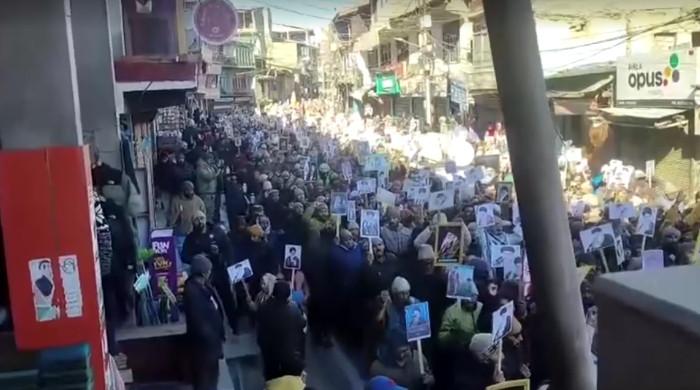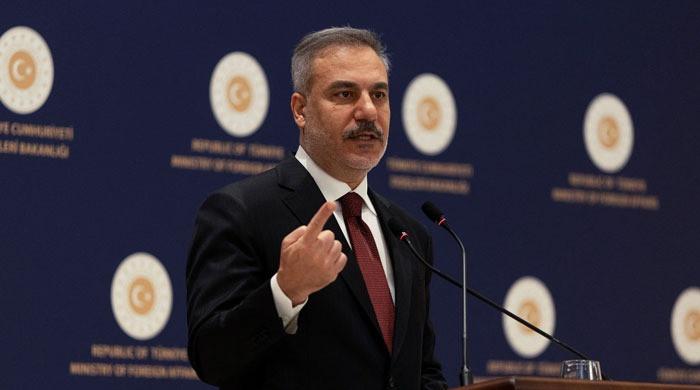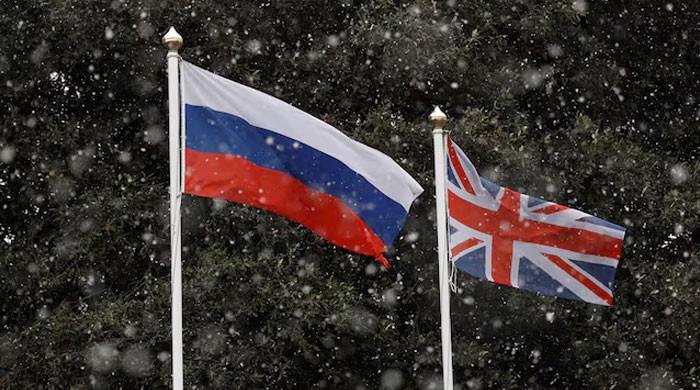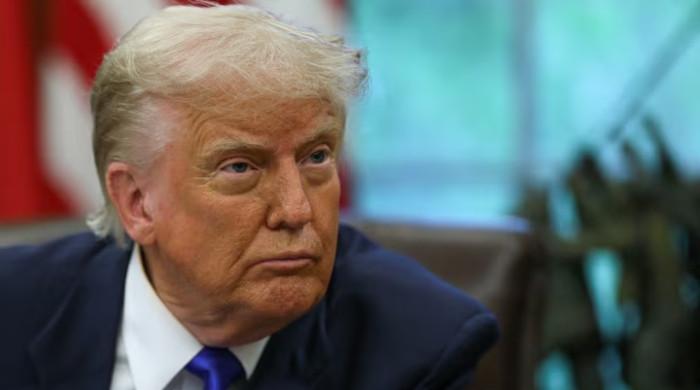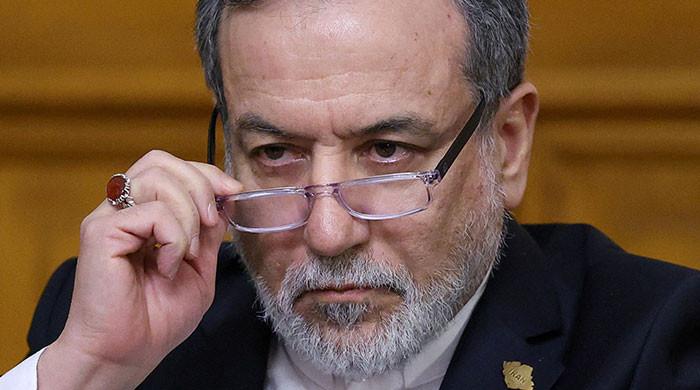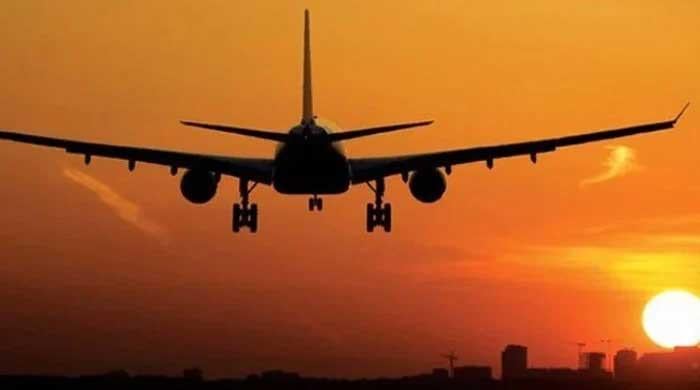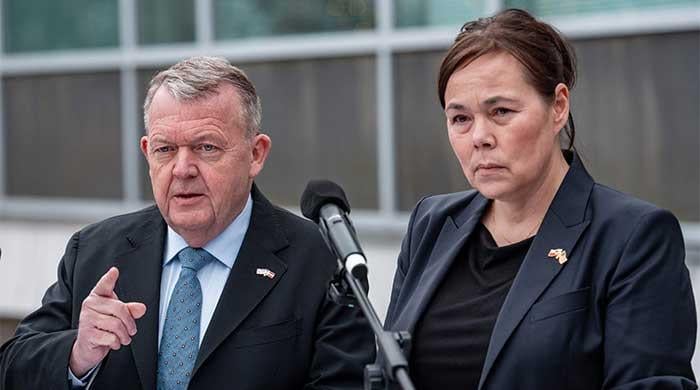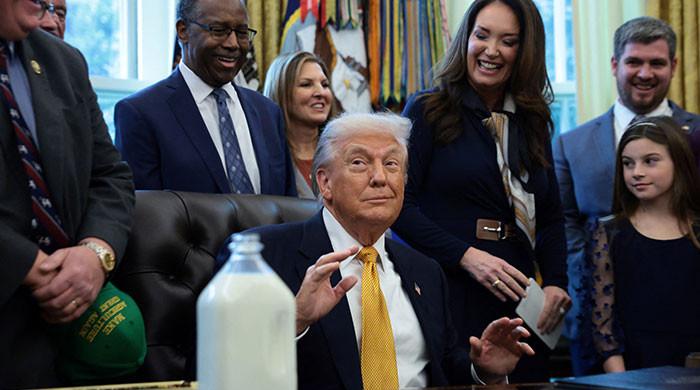US warns Iran of 'dire' repercussions if American bases, citizens targeted
"Our absolute, foremost priority is protection of US citizens, personnel, and forces," says US envoy at UNSC
June 14, 2025
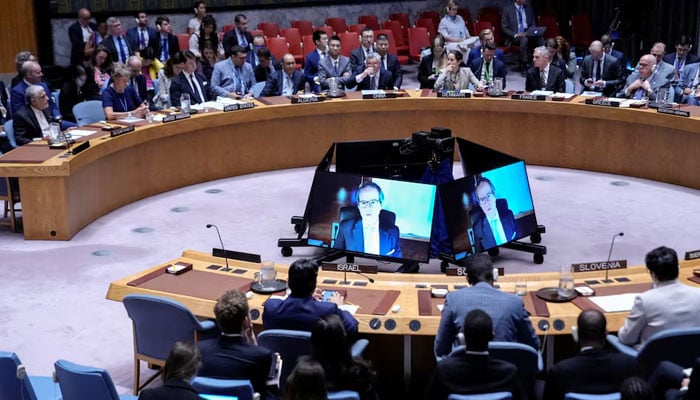
- Those who support Israel must are complicit, says Iran's UN envoy.
- US to seek diplomatic resolution against Iran's nuclear weapon: Pitt.
- Iran's Natanz nuclear site destroyed, says nuclear watchdog chief.
UNITED NATIONS: The United States has warned Iran of "dire" repercussions if it attacked its citizens, military bases and other infrastructure in the region amid escalation with American ally, Israel.
"Our absolute, foremost priority is the protection of US citizens, personnel, and forces in the region," Anadoglu Agency quoted US Senior Bureau Official of the Bureau of International Organisation Affairs McCoy Pitt as saying.
At least 20 senior Iranian commanders, including the head of the Revolutionary Guards, Aerospace Force Commander Amir Ali Hajizadeh, and scientists have been killed in the Israeli strikes.
"Let me be crystal clear: no government, proxy, or independent actor should target American citizens, American bases, or other American infrastructure in the region. The consequences for Iran would be dire," the envoy warned while highlighting that Tel Aviv had advised Washington that its strikes were necessary for self-defence.
Pitt's remarks came during the United Nations Security Council (UNSC) high-level meeting, held in the aftermath of the Israeli strikes on Iran's military infrastructure, senior officials as well as nuclear facilities.
This was followed by Tehran's retaliatory strikes against Tel Aviv in the form of multiple waves of missile attacks.
During the UNSC huddle, Iranian Ambassador Amir Saeid Iravani accused Israel of seeking "to kill diplomacy, to sabotage negotiations, and to drag the region into wider conflict," and he said Washington's complicity was "beyond doubt".
"Those who support this regime, with the US at the forefront, must understand that they are complicit," Iravani told the UNSC. "By aiding and enabling these crimes, they share full responsibility for the consequences," he remarked.
US President Donald Trump said Friday that he had given Tehran a 60-day ultimatum, which expired on Thursday, to make a deal over its escalating uranium enrichment programme. A sixth round of US-Iran talks had been scheduled to take place in Oman on Sunday, but it was unclear whether it would go ahead.
Meanwhile, Israel's UN Ambassador Danny Danon accused Iran of "preparing for war" and that Tel Aviv had been patient despite mounting risks.
"We waited for diplomacy to work [....] We watched negotiations stretch on, as Iran made false concessions or refused the most fundamental conditions," Danon told the UNSC. He said intelligence had confirmed Iran could have produced enough fissile material for multiple bombs within days.
In light of the increasing escalation, Pitt said the US will continue to seek a diplomatic resolution that ensures Iran will never acquire a nuclear weapon or pose a threat to stability in the Middle East.
"Iran's leadership would be wise to negotiate at this time," Pitt told the council. While Washington was informed of Israel's initial strikes ahead of time it was not militarily involved, he said.
UN nuclear watchdog chief Rafael Grossi told the UNSC the above-ground pilot enrichment plant at Iran's Natanz nuclear site had been destroyed, and that Iran has reported that nuclear sites at Fordow and Isfahan were also attacked.




